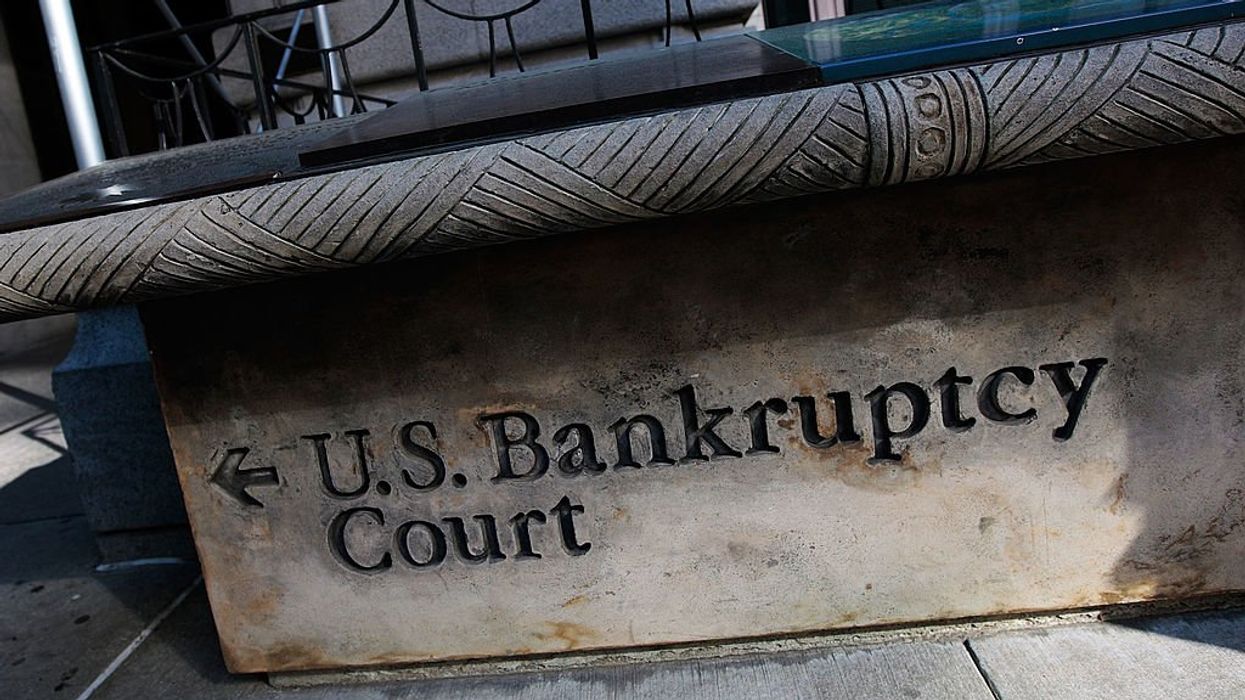Over the last several months, Glenn has emphasized the importance of bringing together individuals who share the same goals and unifying principles so that we can learn from one another. GlennBeck.com is working to fulfill that goal by sitting down with some of the most interesting minds to give you an inside look at who they are and what they are working on.
Last month, Emmy award winning actress and producer Roma Downey spoke with GlennBeck.com assistant editor Meg Storm about her childhood growing up in war torn Ireland, the lack of Christian content coming out of Hollywood, and why people are responding so strongly to The Bible and Son of God.
Below is a transcript of the interview:
Hi, Roma! How are you?
Great! I am in Houston today.
How nice! I am actually in New York, but Glenn is down in Dallas.
Are you freezing in New York?
(Laughs) We are. We have a lot of snow on the ground right now.
Well, be safe!
Thank you! Before we dive into the Son of God questions, I just wanted to ask you a few things about your background. Were you always interested in the entertainment industry?
When I was in high school, I thought I might be an artist. I was very good at drawing and painting. I have always been someone who expresses themselves in an artistic way. I grew up in Northern Ireland. I grew up during the war. There weren’t a whole lot of opportunities to act. The local cinema had been burnt down, and the theater company had been blown up. My growing up wasn’t exactly conducive to figuring out that’s what I wanted to do. But once I started college and got involved in drama, it was clear that I loved that as a form of expression. I have had a great and enjoyable acting career, and now I am enjoying a great second act in my career as a producer.
How did you get your start in the industry – you said it was in college?
Yes, I came up through the theater. I came out of drama college and started working in the professional theater. I did a play with the Abbey Theater, which is Ireland’s national theater company. We brought that play to America. My dream had been to appear on Broadway, which I was able to do – I think it was 1990 or 1991 in a show called The Circle at the Ambassador Theater on 49th Street in New York City. And I also had the opportunity to work at the New York Shakespeare Festival with the Roundabout Theater Company. I had a classical training with Shakespeare, Shaw, Chekov, and so on.
And then I found myself getting cast in roles for television. I moved to Los Angeles on the heels of a mini-series I was in. I starred as Jackie Kennedy in a series called A Woman Named Jackie, which went on to win the Emmy that year. I was just in Los Angeles a few years when I cast to play the angel in Touched by an Angel.
How did you and Mark first meet?
We met just a little over 10 years ago now. We met in Malibu. I was having a manicure/pedicure. My husband was having a haircut. Our eyes met in the mirror – not once, not twice, but three times. And on the third time, having been caught looking over at him, I swore I would not look back. And he left – he took off in his car. We didn’t speak. When I was paying my bill, I was very discreetly trying to ask the receptionist who he was. And she said, "Oh isn’t that interesting that you are asking me who he was because he just asked me who you were!"
Oh my goodness!
So anyway, a few days later he got my phone number and called. And I guess the rest, as they say, is history.
That is such a great story – especially on Valentine’s Day! You were talking about how you have an extensive theater background and TV and movies and now you are behind the camera as well. Do you enjoy doing all of it equally?
Yes, I do. You know for many years, when I was starring on Touched by an Angel, I produced on a number of television movies for CBS. I have always enjoyed the aspect of bringing something together and multitasking in that way.
In the case of The Bible series and now Son of God, it has been a combination of what I love to do and what I believe. To be able to do that with the person I love has just really been a blessing. It has been the most challenging work and the most rewarding work. It was quite an undertaking to realize our Bible as a television series. We knew that came with a huge responsibility to bring the scripture to the screen – one that we took very seriously. We worked with scholars and theologians and faith leaders to refine the story, to tell the story accurately, to make sure that we brought the story to life and always kept true to the story of the book.
With Son of God, there is such an excitement and buzz growing. It opens on February 28, and we have been traveling across the country seeing a movement growing. Churches, I think, see what a resource the film is to visually bring the gospels to the screen. Jesus hasn’t been on the big screen in 10 years. That was Passion of the Christ, which only showed three days in Jesus’ life where Son of God is the narrative of Jesus’ life from the nativity and our Christmas story right through to his death but then his resurrection and ascension. The movie goes right through to the Commission. And I think the churches are seeing what a beautiful gift it is. They are stepping up and buying out the multiplexes around the country and giving the seats to their communities and youth groups and so on. So it has been very encouraging to be here in the middle of the south of the country and see what is happening.
You saw the great success of The Bible miniseries last year. Do you think there is such a void in the industry for content like this? Do you think people are really responding because there aren’t other options?
I think that’s true. I also think it speaks to a greater surge that people have. They are hungry for God and hungry for hope. When we first started working on The Bible series, I know that many in our industry thought we were fools, that nobody would show up, that nobody would be that interested in seeing Bible stories on the screen. Of course, we now know that one hundred million people showed up. The Bible series continued to ripple around the world with such success in countries that are surprising like Hong Kong and Australia – places that you might not think would have a huge interest or appetite for faith filled stories.
I think that part of our intention always was – it’s not enough to have good intentions, to bring the stories to the screen. We knew the stories had to be brought with excellent production value and told in a way that would be gritty and compelling and engaging and emotionally connecting. Ultimately, I think it was that that people responded to. Yes, they are good stories. But they are good stories well told.
So you filmed Son of God around the same time you filmed the first season of The Bible?
Oh, yes, absolutely! Every Friday night we would screen footage over there in Morocco. We had an editor on location with us. We would invite our cleaning team, our stars – everybody who worked on the movie had an open invitation to come to these screenings. It gave us an opportunity to see the work from the week that we had just completed, and it allowed everyone to feel like they were part of the team.
At one of these screenings, the Jesus narrative began to unfold, I turned to Mark and said, “Wow, Mark. This is really good. I wish we could be making a film.” And he said, “Well, why don’t we? Let’s shoot additional footage and have the editors start putting something together.” So it took about a year to get the movie edited. We had additional footage. We had a reedited form of the series footage. We have been able to present it in this cinematic way – in this stand-alone theatrical experience. And it is so different. It is so beautiful and impactful.
The feedback we are getting is people are enjoying the larger than life experience. They are enjoying seeing it in community with others. And you really get to see the scale of it and the full epic, sweeping stories with visual effects, special effects. It’s moving. It’s inspiration. And at the same time it’s this deeply personal, intimate love story. People are being profoundly moved by it.
I have seen some clips, and it so incredibly powerful the way you were able to translate these stories that have become so familiar because they are so iconic. But then to see them told in such a way is really something special.
The characters of the disciples – we wanted to cast them as a youthful group, as a dynamic group. They didn’t know they were in the Bible. They were just real guys living their lives. They didn’t even know that Jesus really was the Son of God until he rose. I think it’s the telling of the story in a very human way, in a very relatable way to people. The story is asking them to consider the stories in a new way. It’s a fresh telling. I think the movie will really touch people hearts.
I recently read that The Bible was picked up for a second season, this time on NBC. Is that correct?
Yes, we are doing a mini-series for NBC. We have a green light for 12 hours – for the first 12 hours. And it’s called A.D. The story will reset at the crucifixion and tell the story of the 11 disciples and the fear and the danger and the hope of those dark days when Jesus had died and then the beginnings of the early church.
We are currently working on those scripts, and we plan to be filming that new series back in Morocco by the end of this year, with the hope that it will be on television in the fall of 2015. So we will have had The Bible on TV in 2013, Son of God in theaters in 2014, and A.D. on television in 2015.
It’s been exciting and creative days for us. We must be the noisiest Christians in Hollywood!
That’s wonderful. Well, I look forward to seeing it. Thank you so much for time, Roma! It was a pleasure speaking with you.
We appreciate your help in getting the word out to everybody that Son of God is coming in English and in Spanish too. Thanks, Meg. Bye, bye.
Son of God is now in theaters nationwide. Watch the trailer of the film below:








